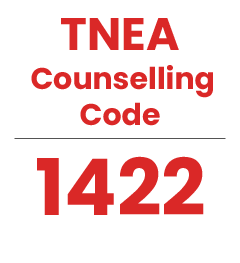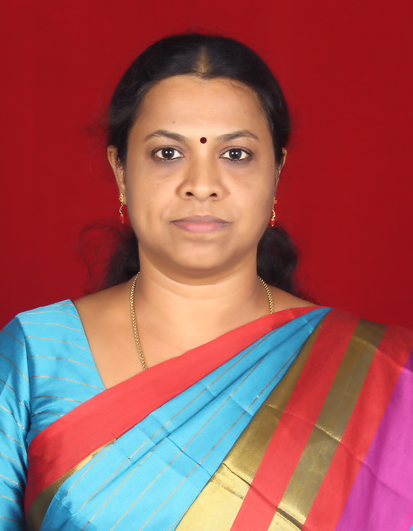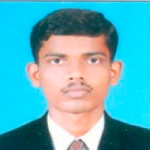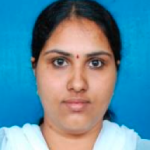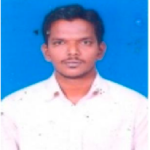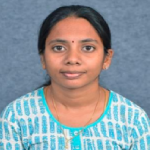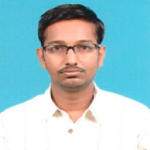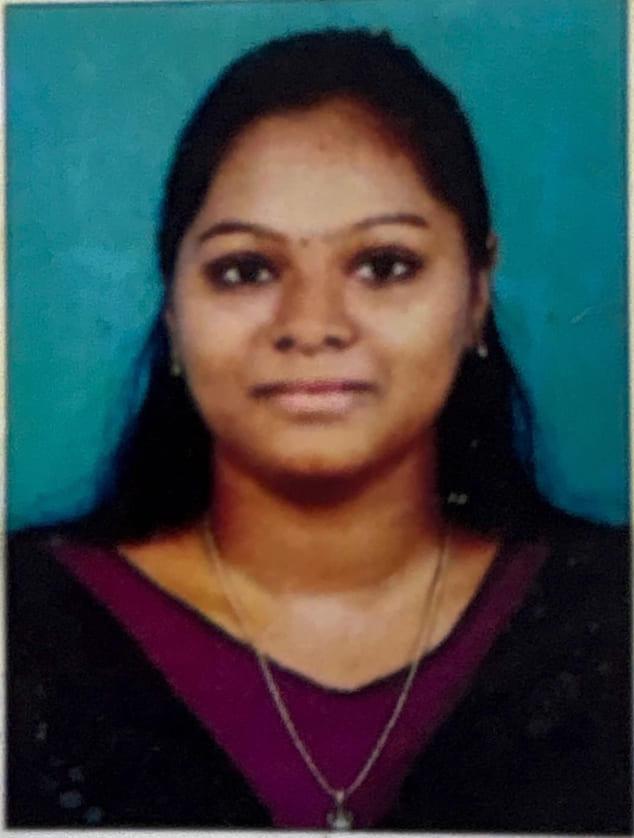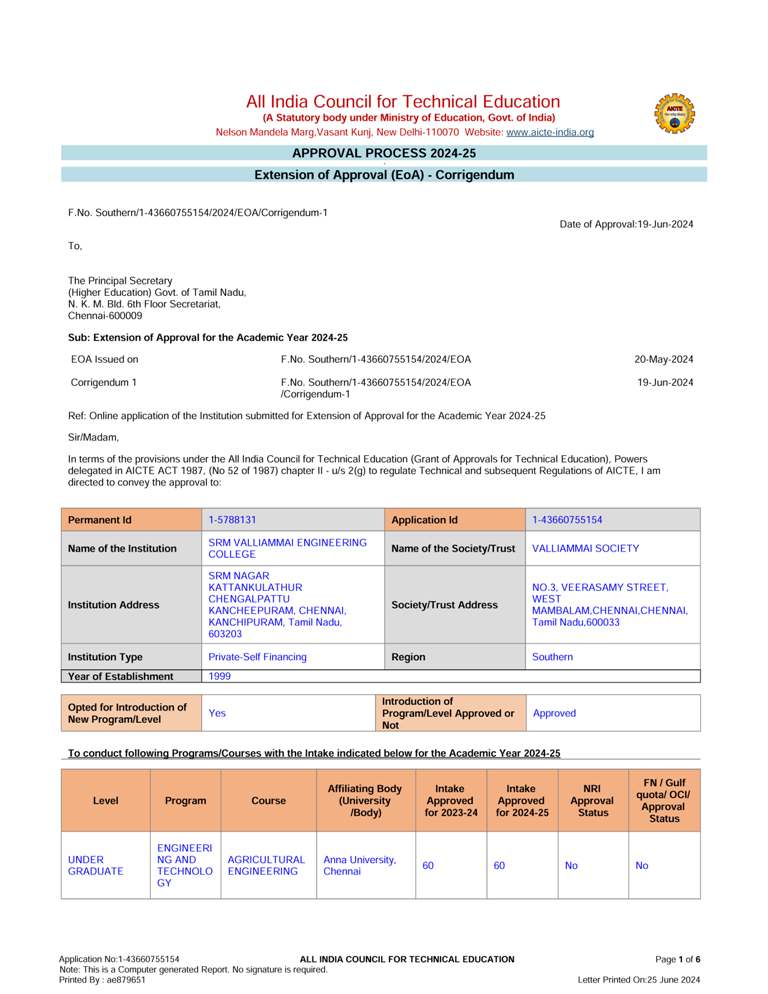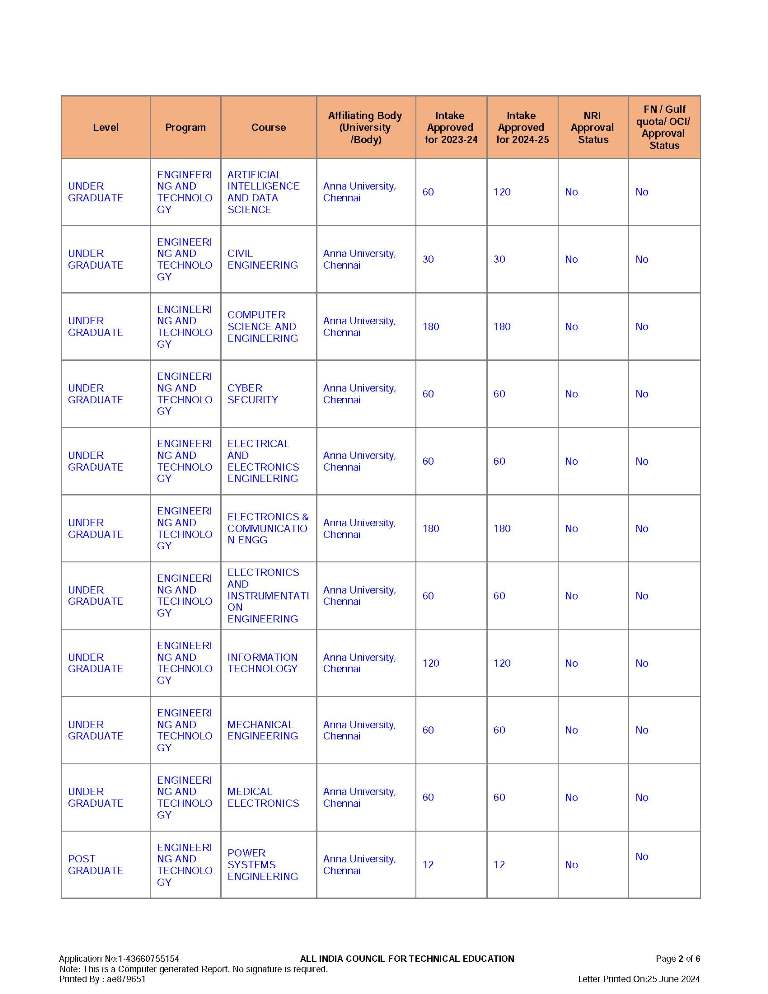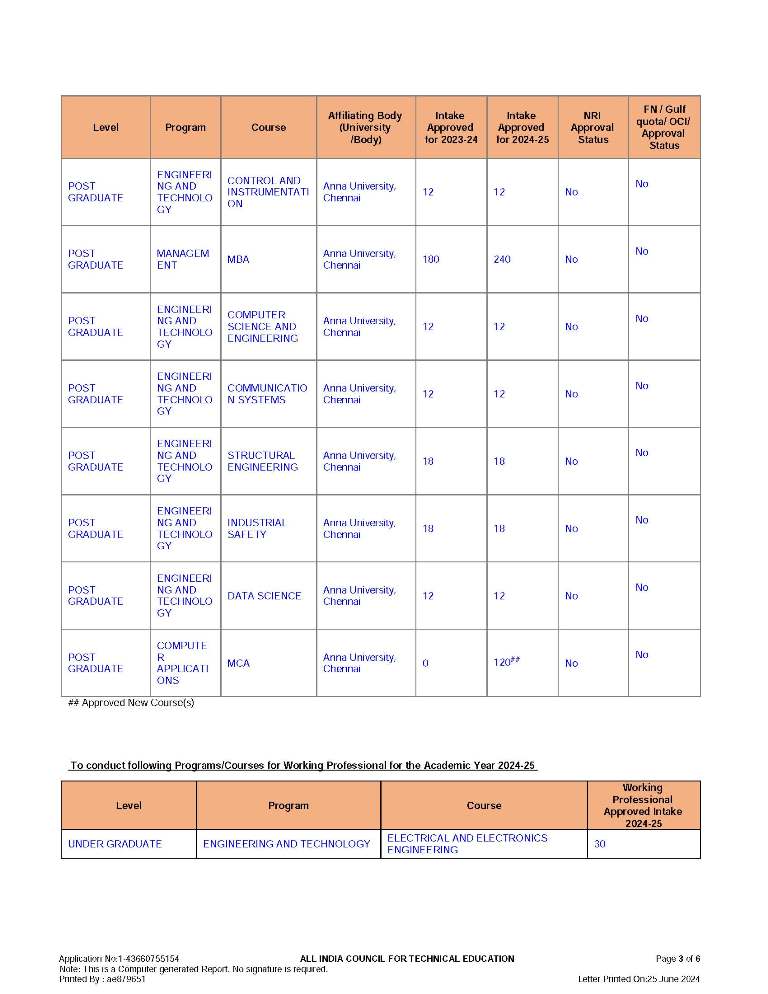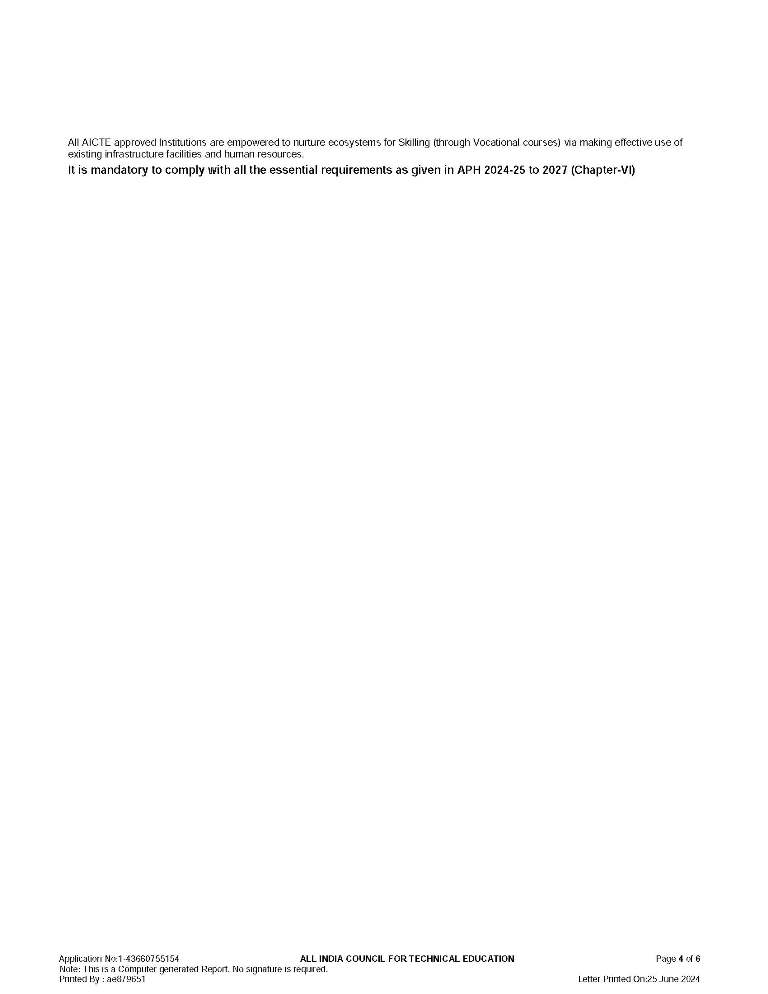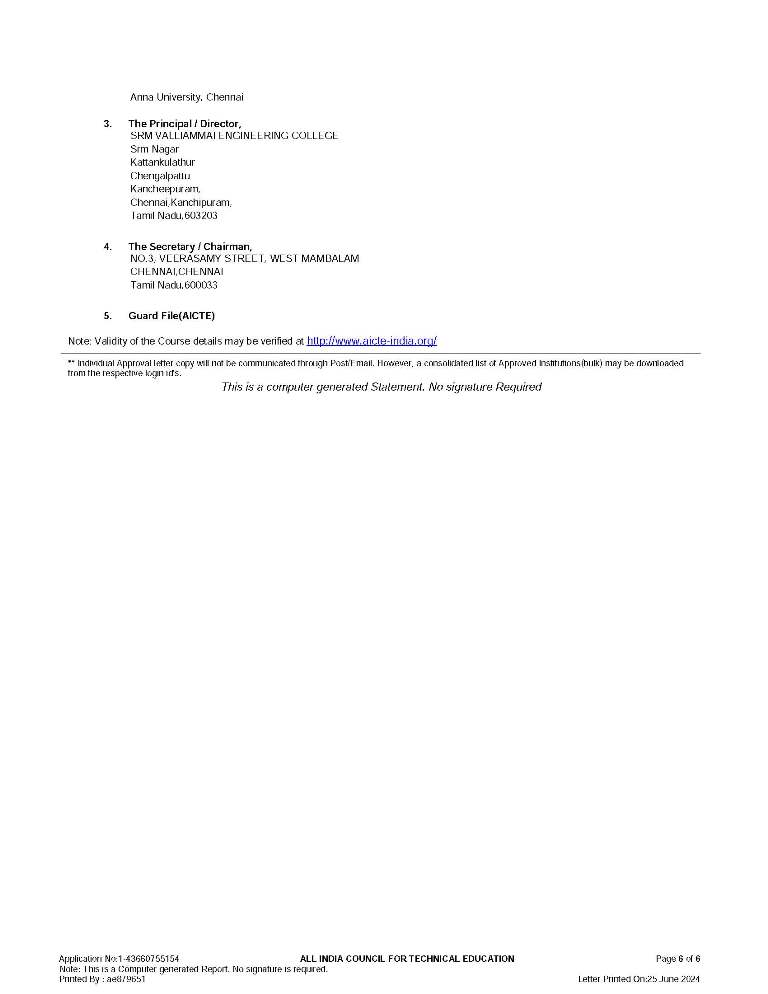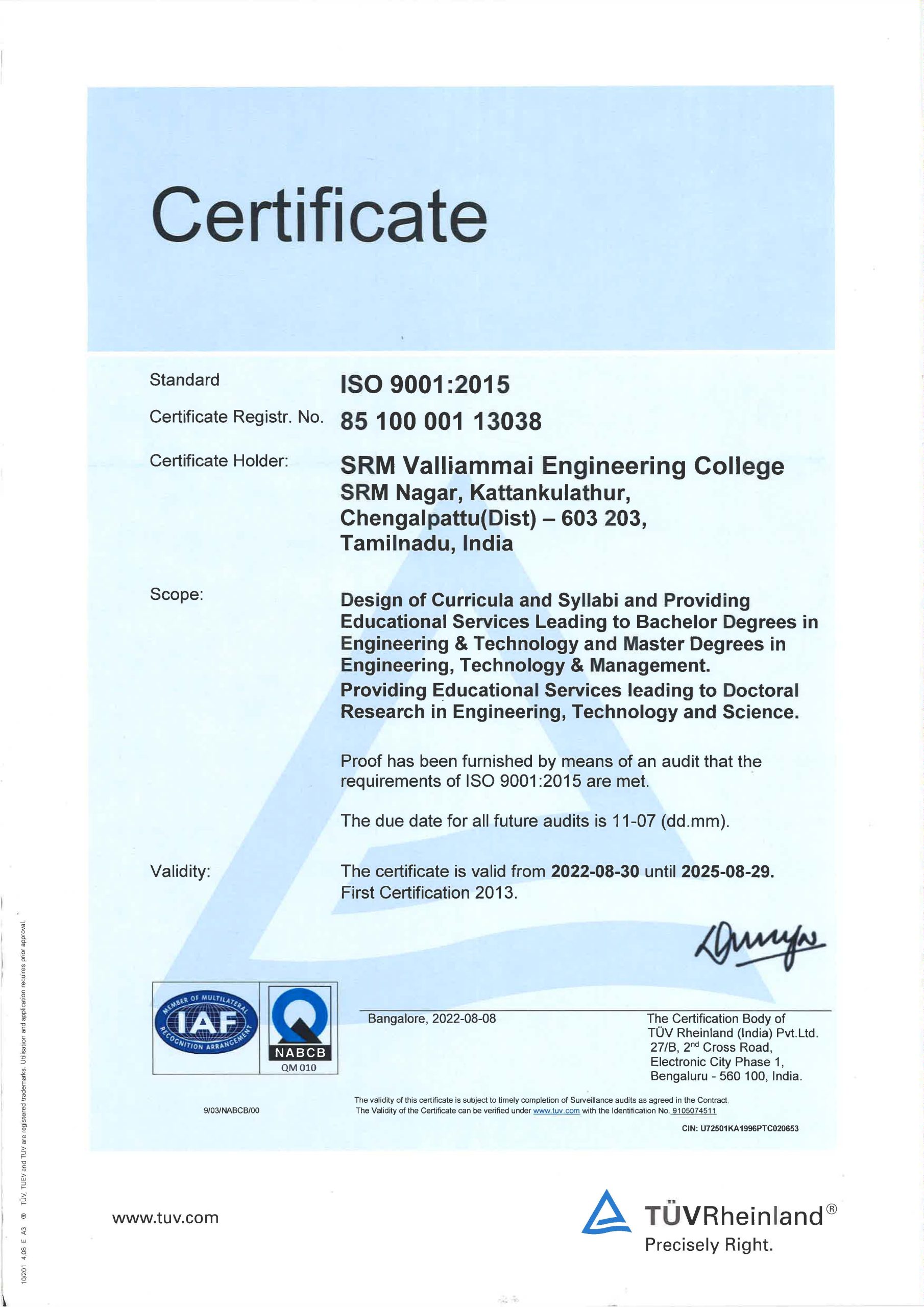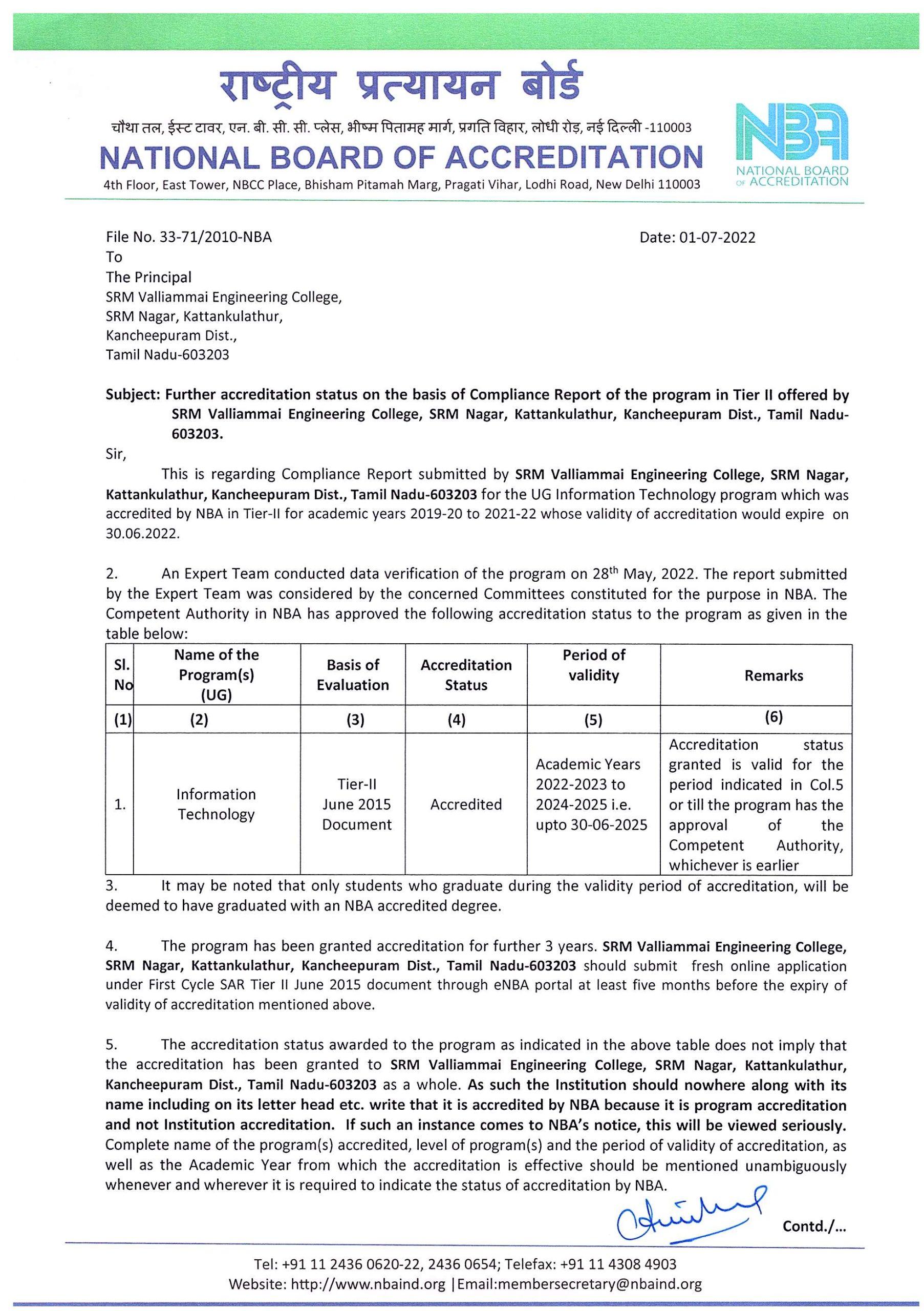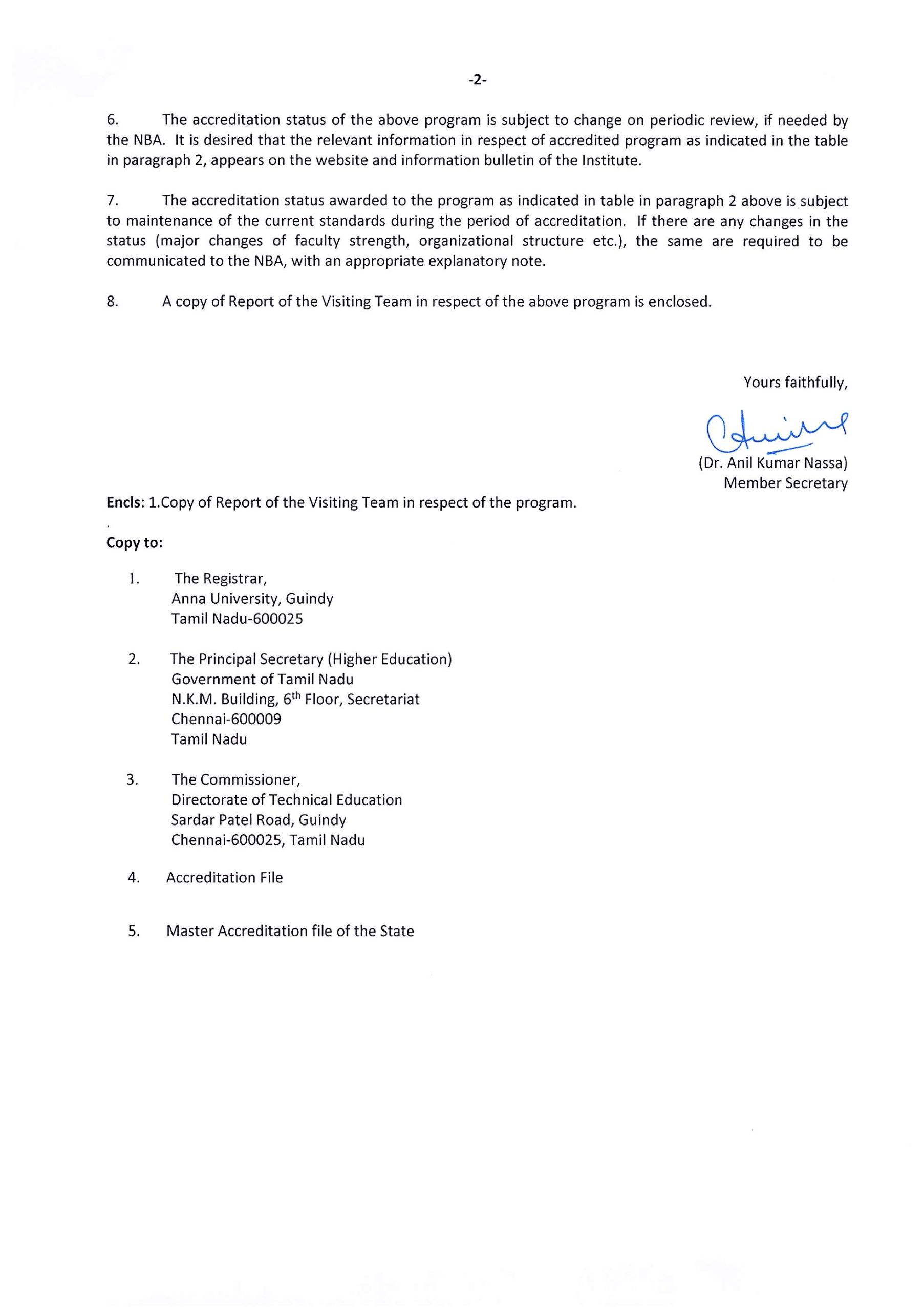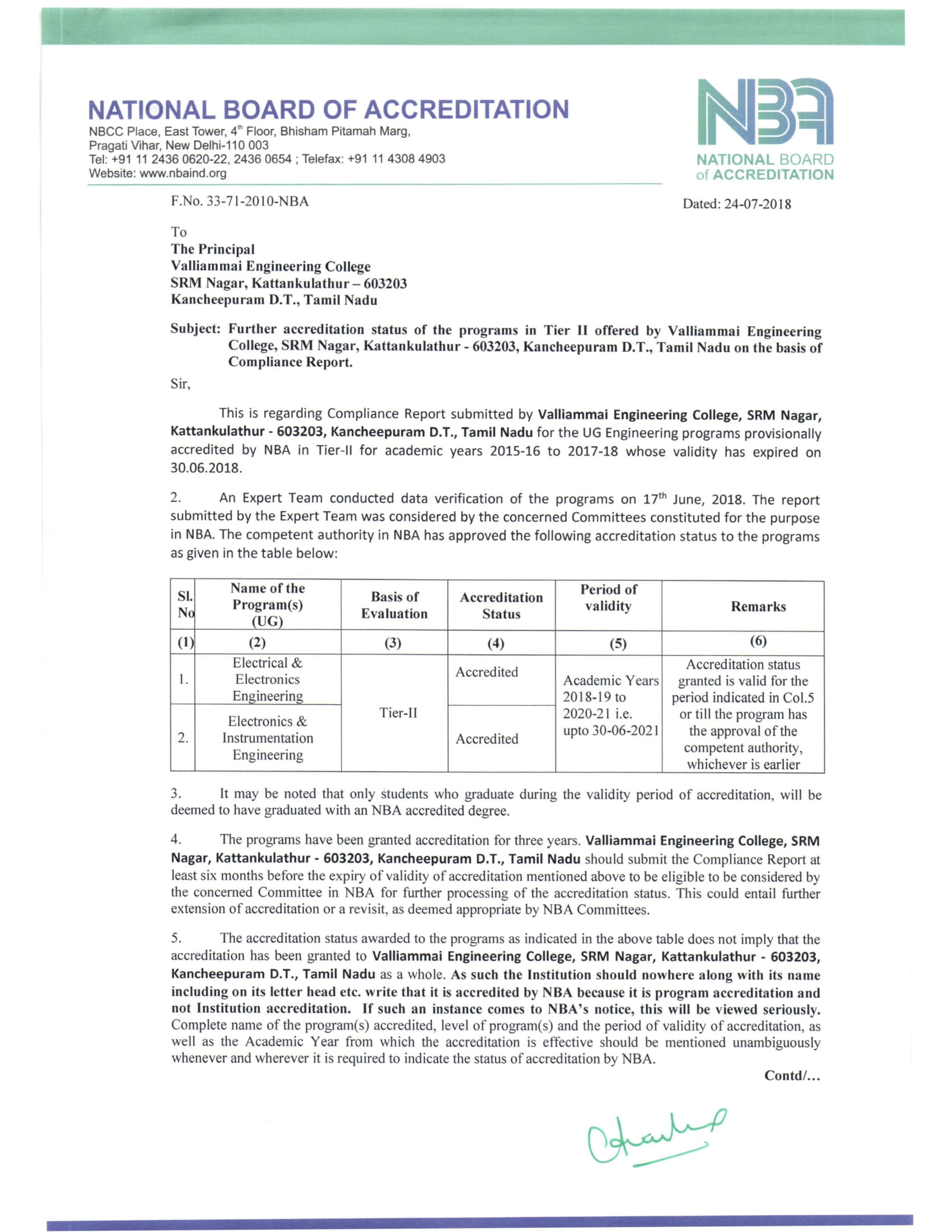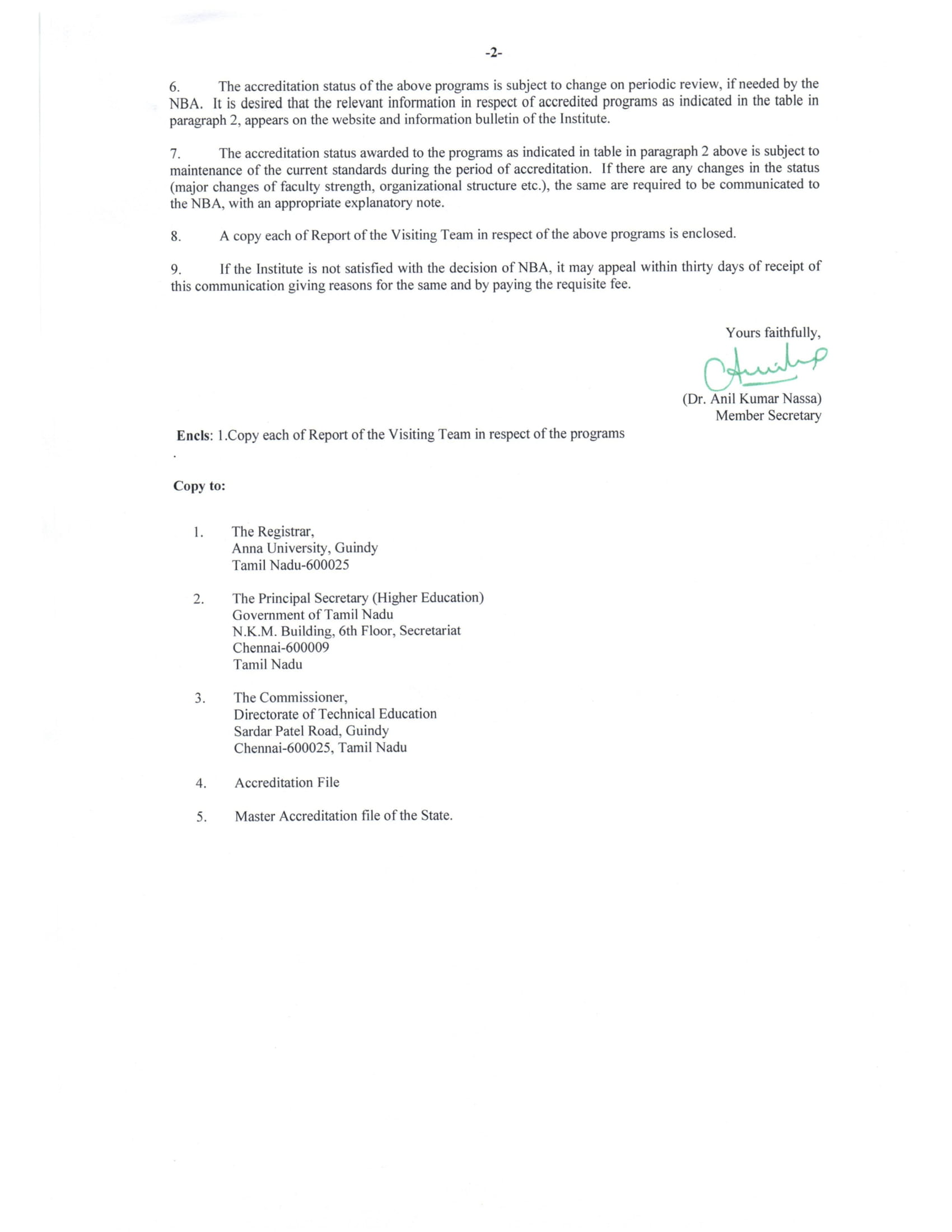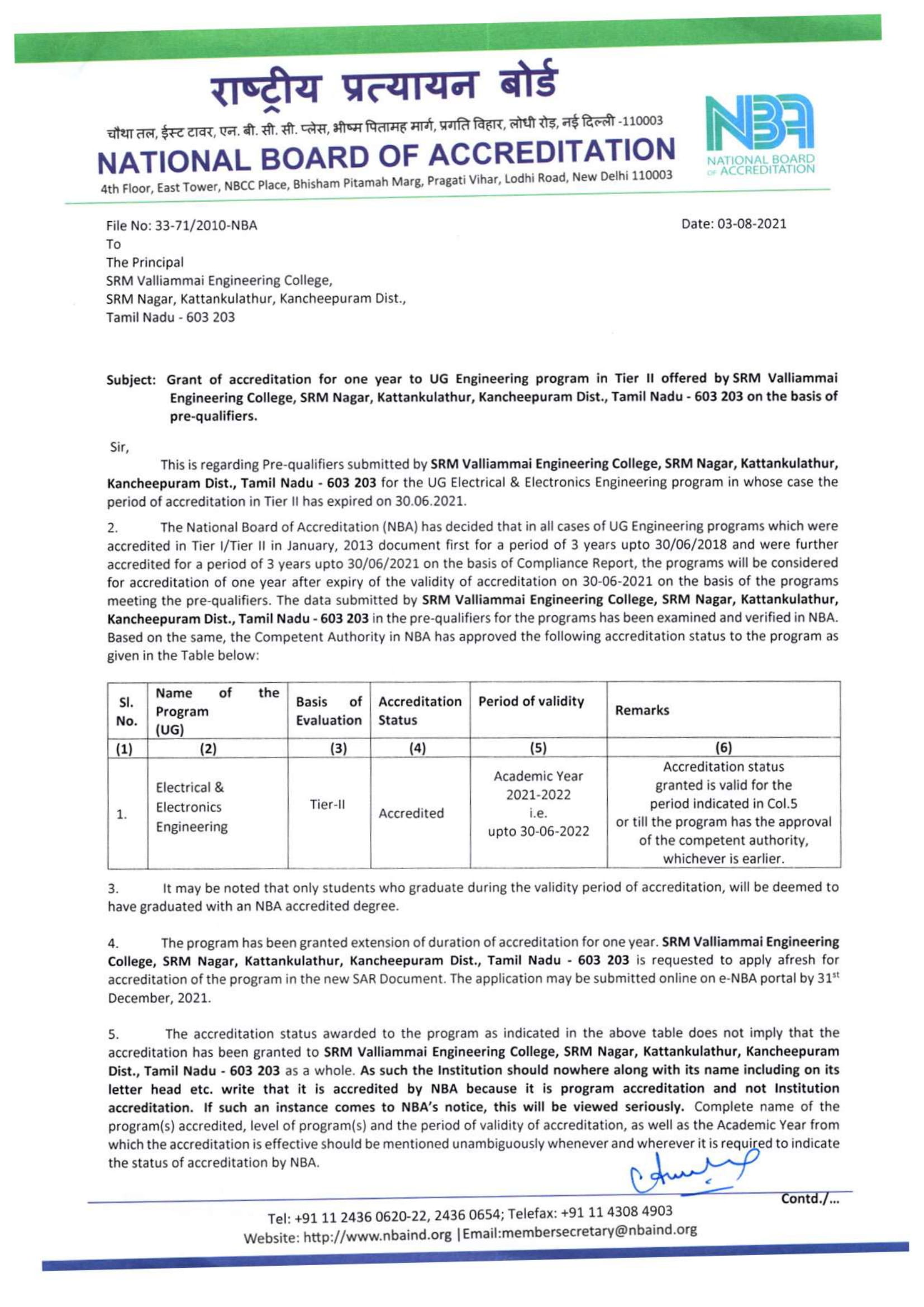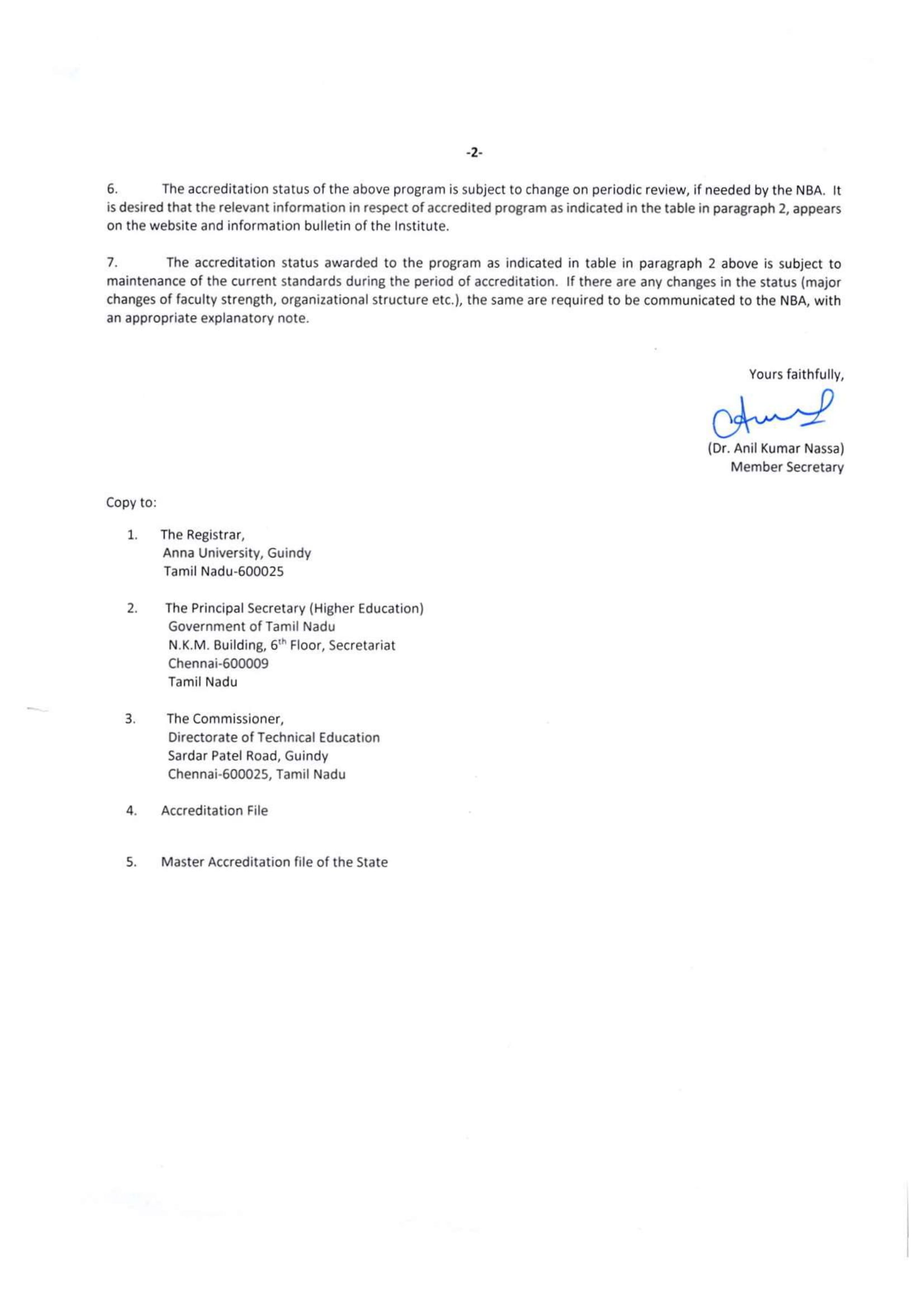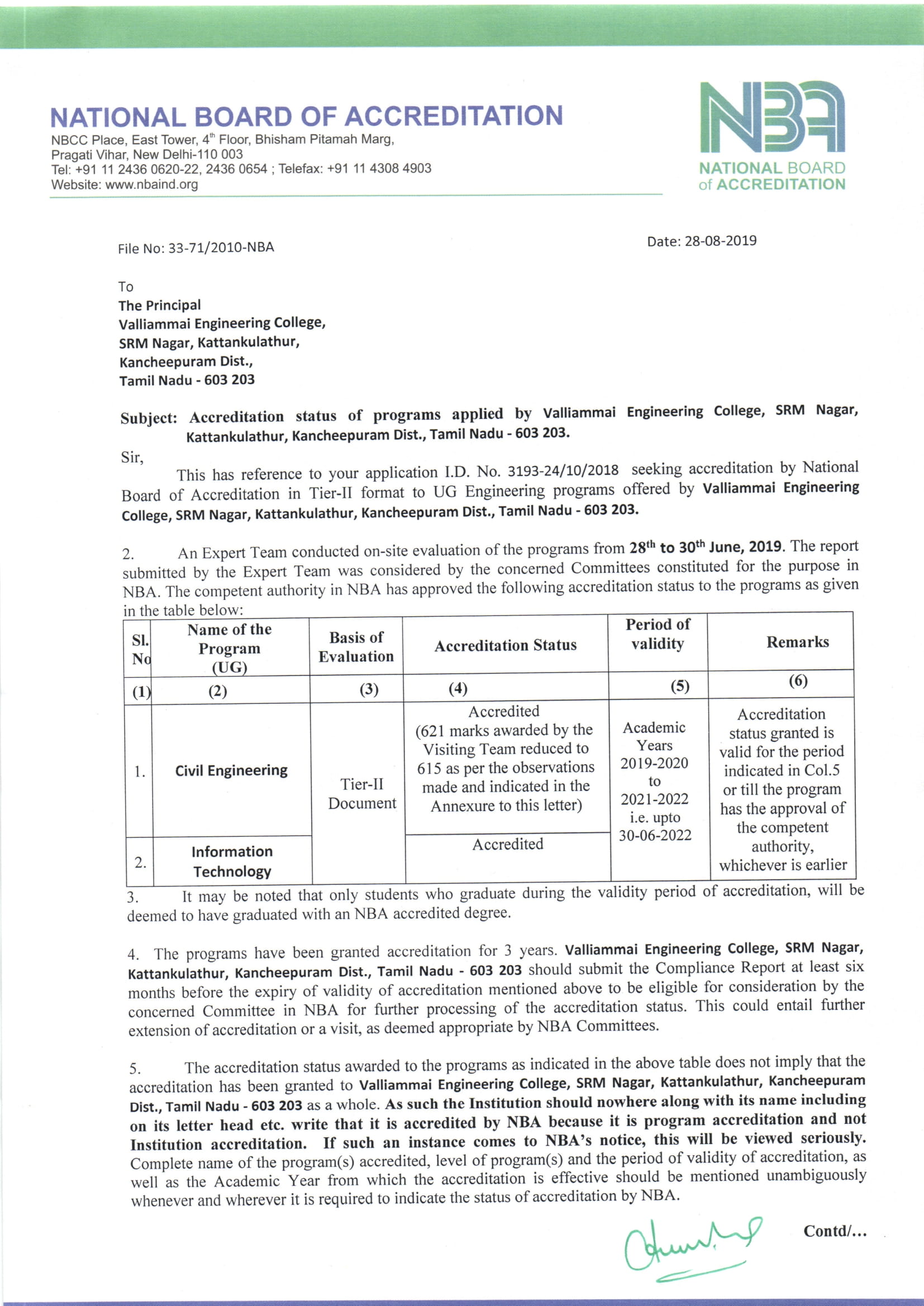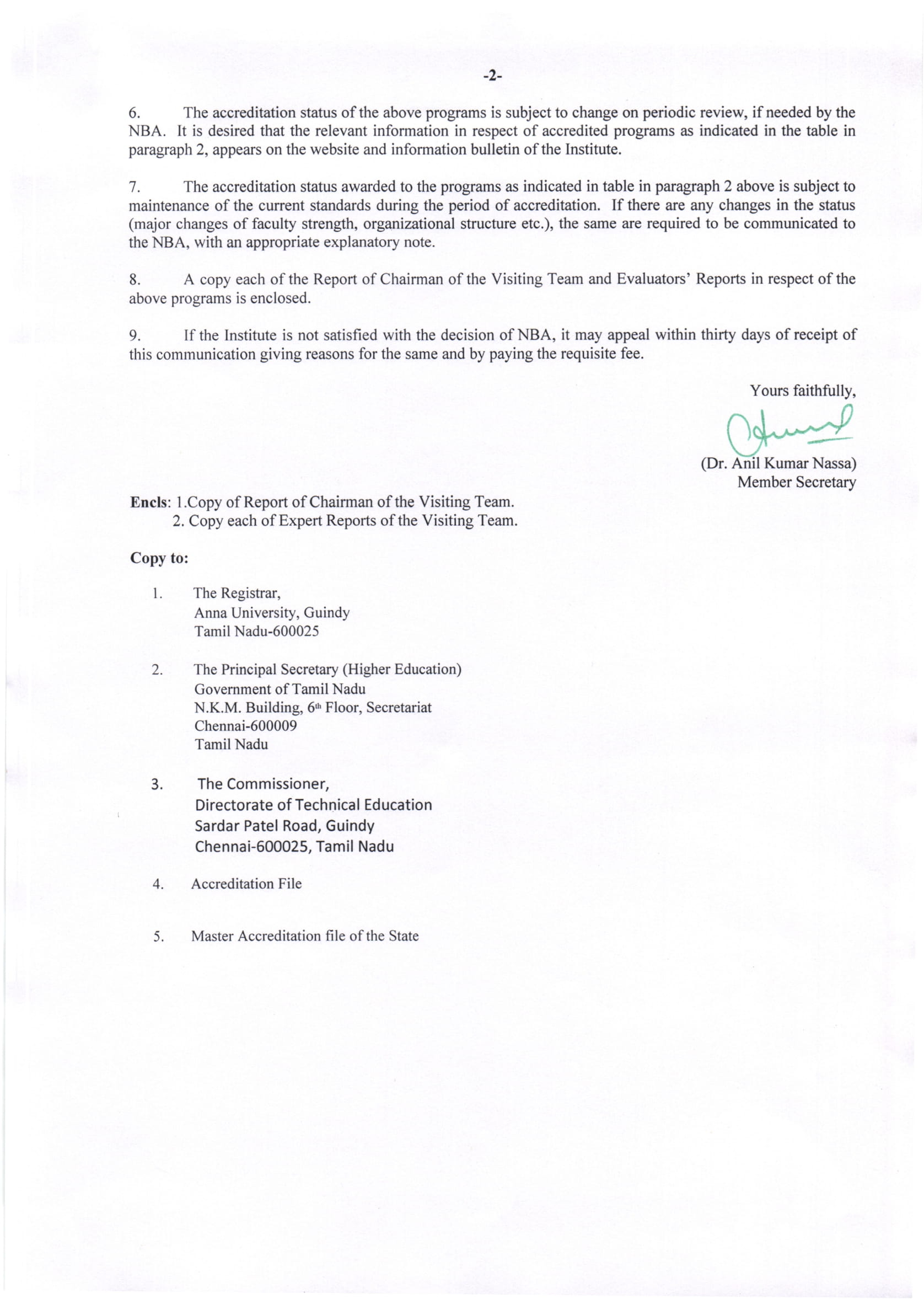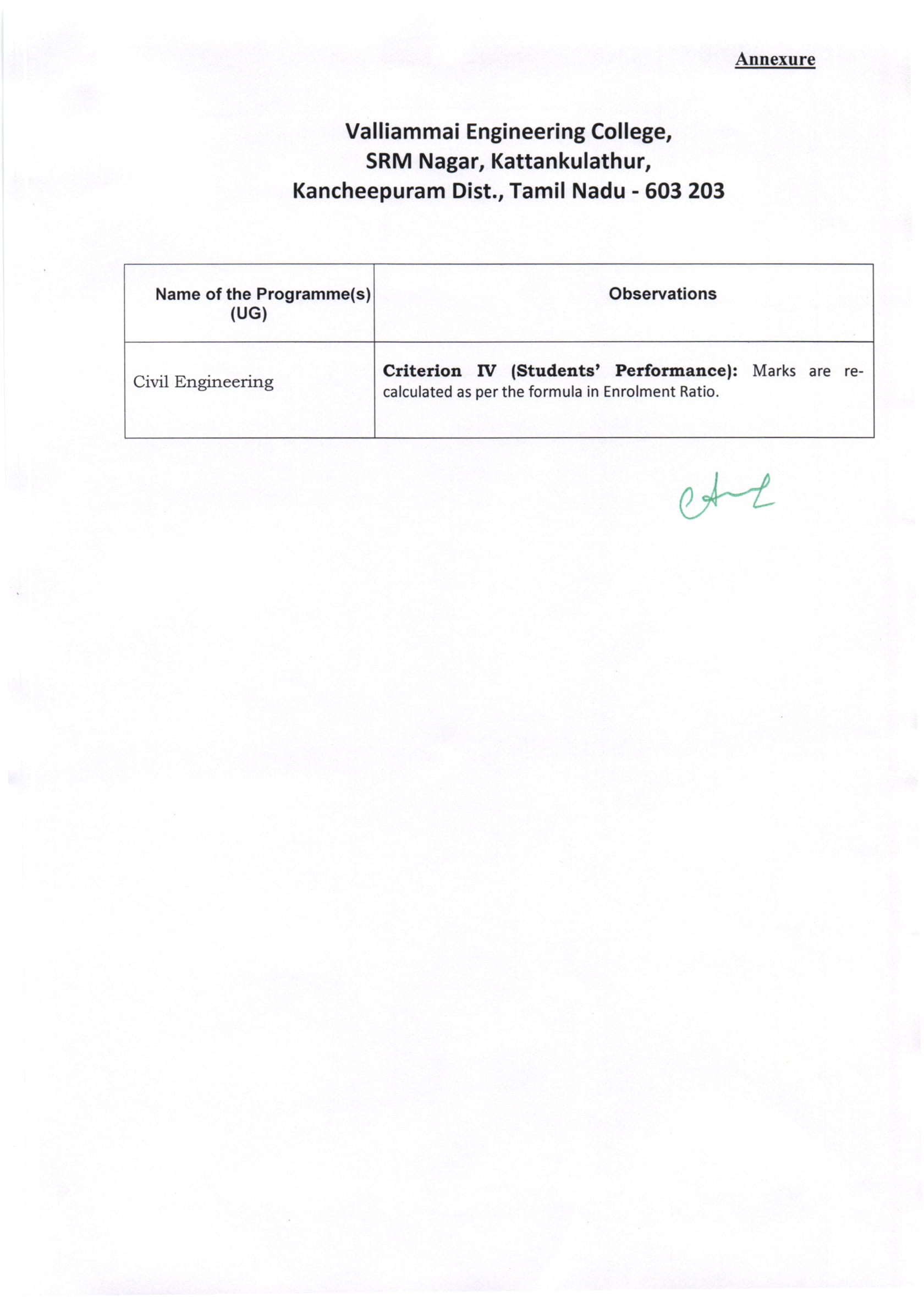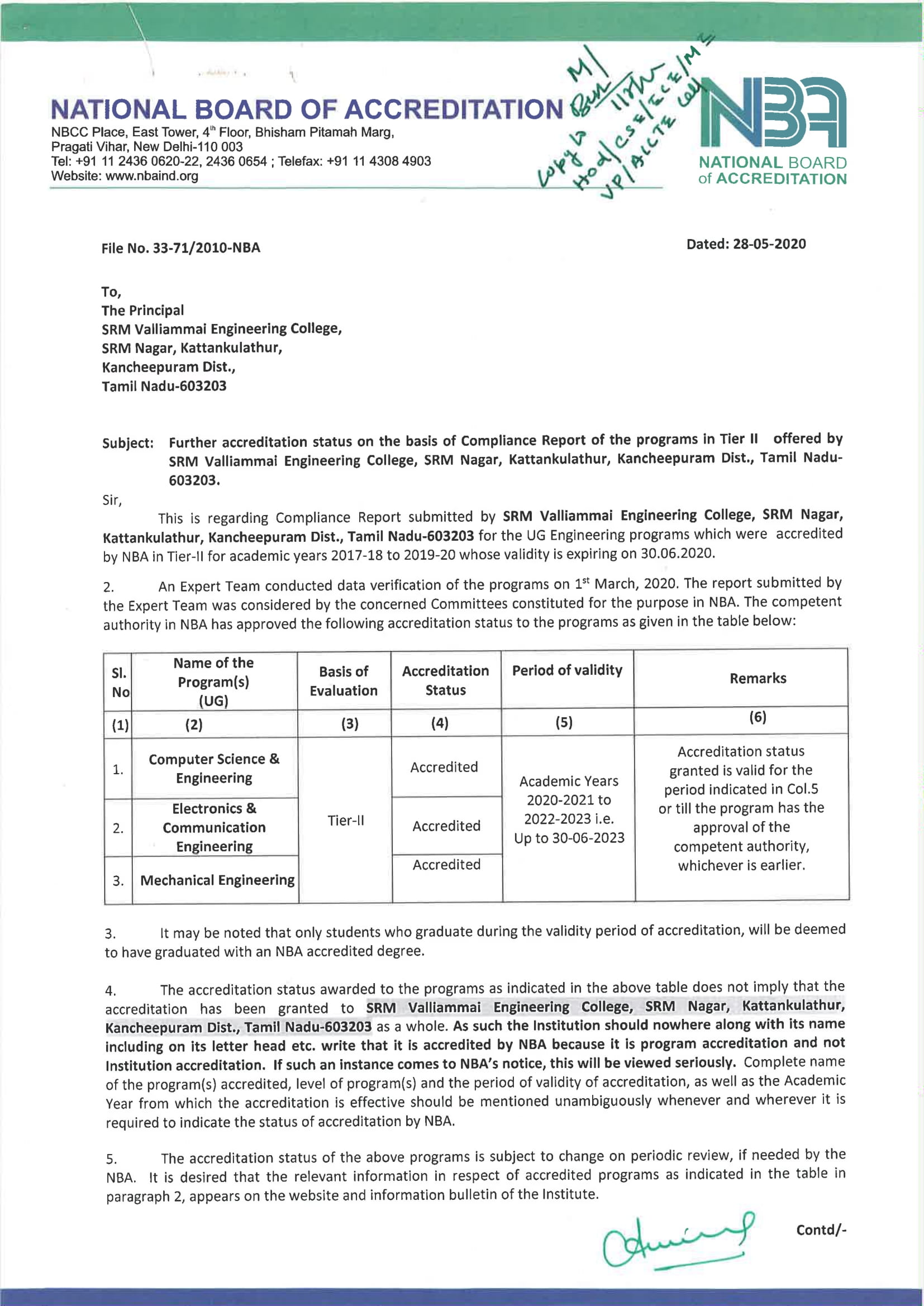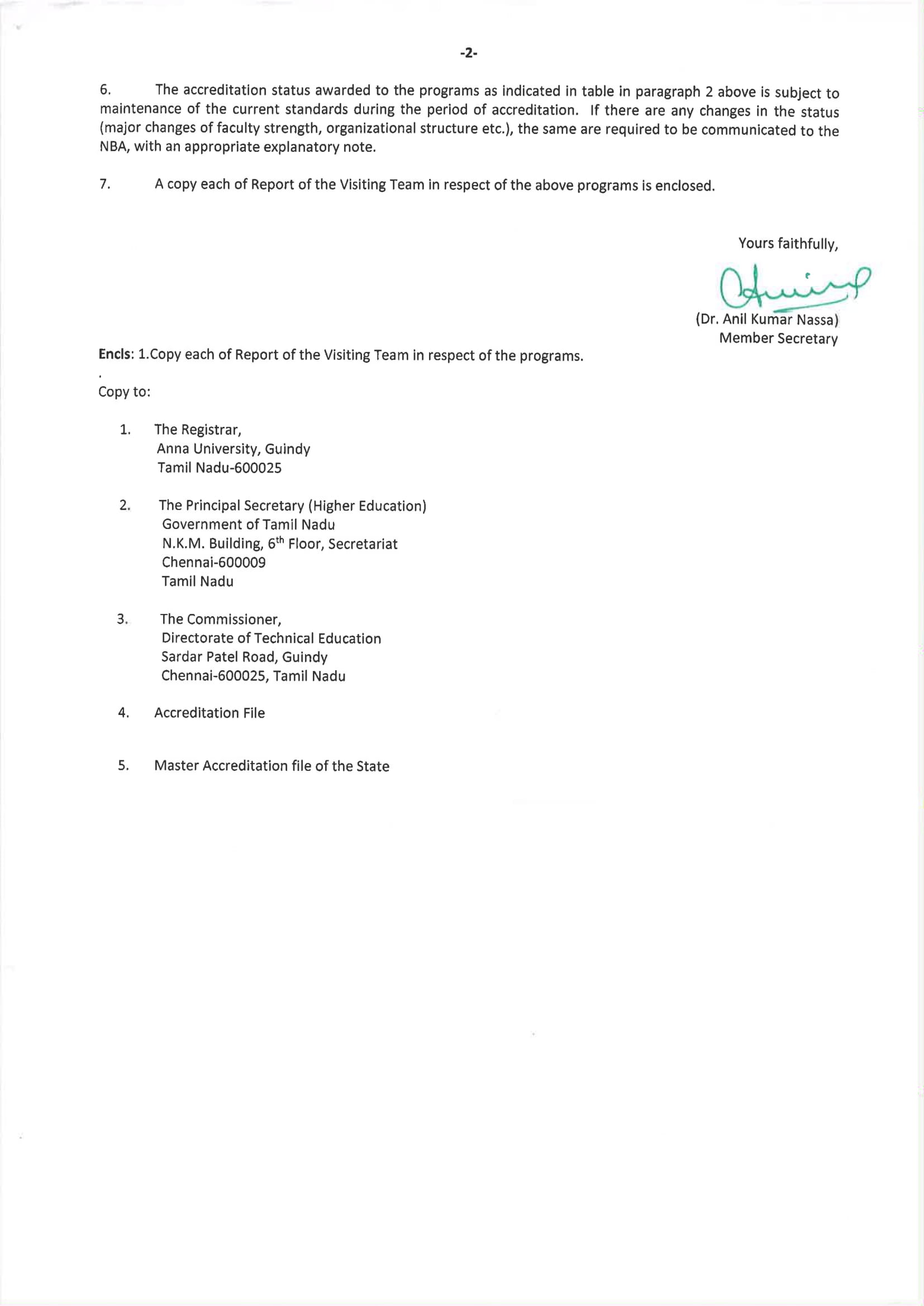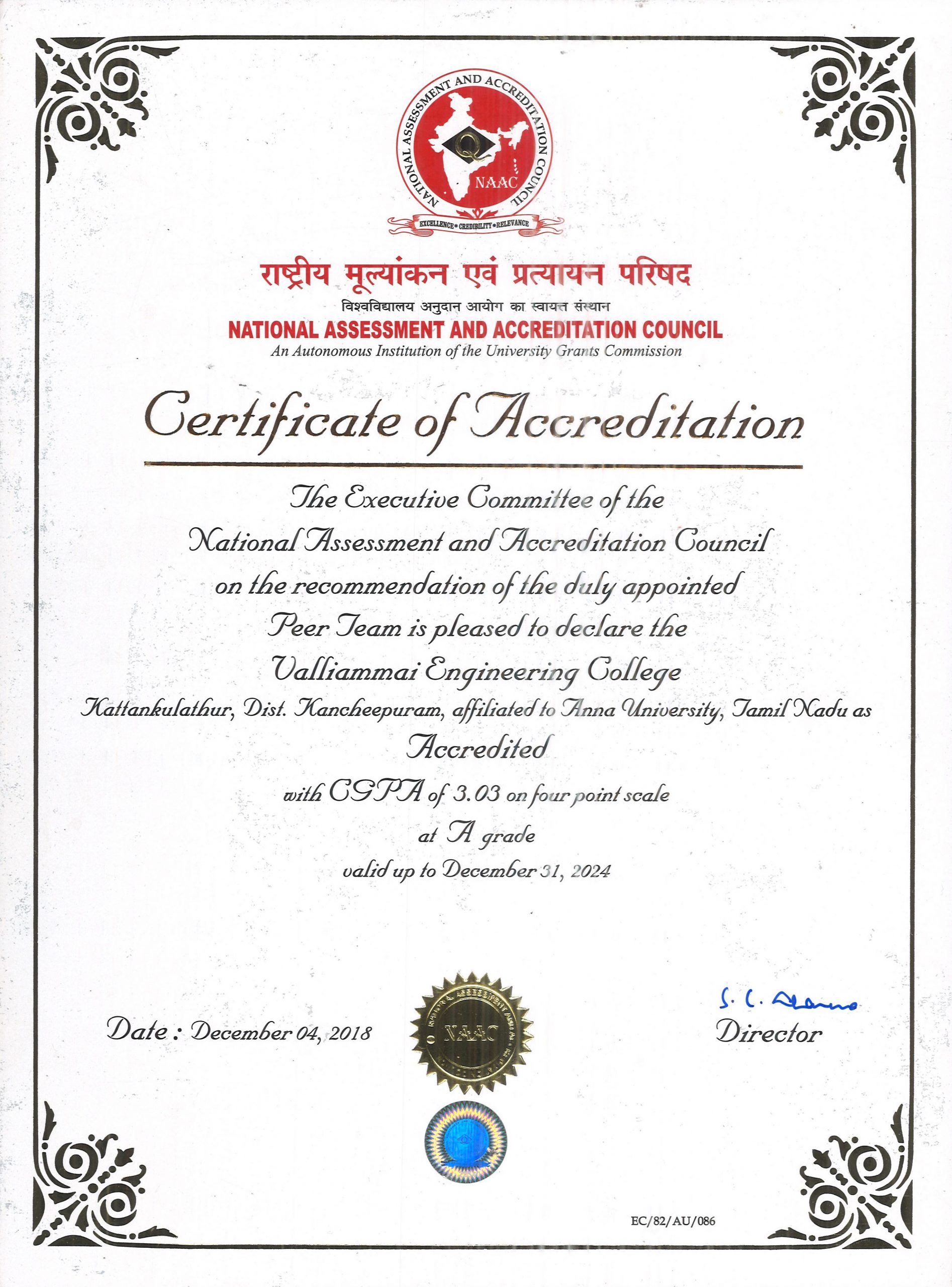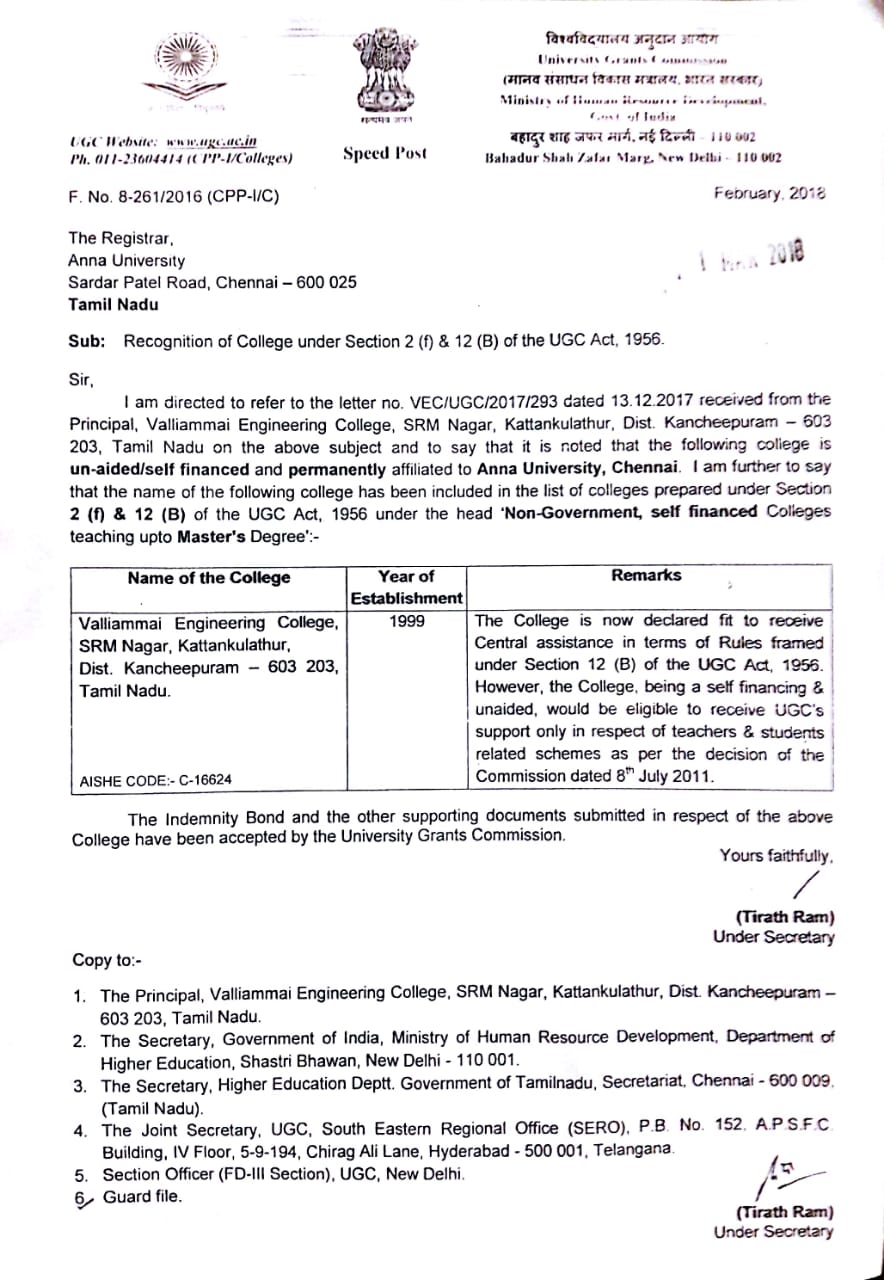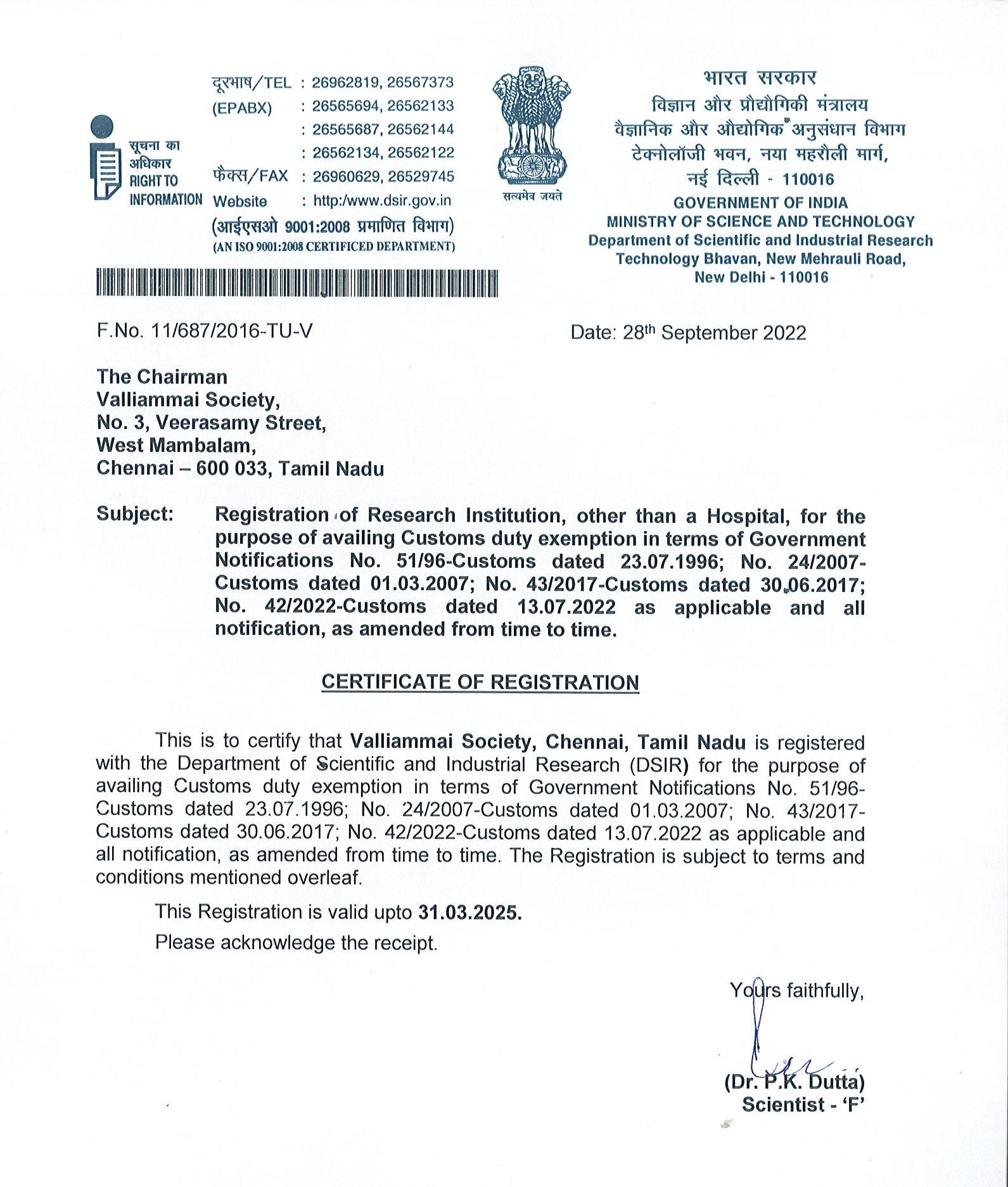

About the Department
Department Of Agricultural Engineering
The Department of Agricultural Engineering commenced from the academic year 2019-20 with a vision to mould our students as strong professional engineers to build our nation. The Department is established to develop professionals with the knowledge of modern farming and irrigation.
To meet the social needs with respect to agriculture, irrigation, farm mechanization, soil and water conservation and water resource system.
Vision, Mission, PEO, PO, PSO
Vision
To produce world class professionals who are equipped to meet the demands of global outfit, have analytical abilities and entrepreneurship for making career of self-employment and as contributors to Livelihood and Food / Nutritional Security.
Mission
M1: To ensure effective teaching learning process to provide in-depth knowledge of principles and its application pertaining to Agricultural Engineering.
M2: To import practical knowledge to students about the conventional and technology based agricultural systems.
M3: To provide engineering and technology expertise in the field of agriculture for the state and nation.
Programme Educational Objectives (Peo’s) :
PEO1: To train and educate students with general knowledge and skills in agricultural water management, agricultural production process, farm machinery and farm management.
PEO2: To provide a sound theoretical knowledge in engineering principles applied to agriculture
PEO3: To prepare students for a successful agricultural engineering career integrating all aspects of engineering in agriculture.
PEO4: To develop innovative capacity of students for increasing agricultural production with scarce water resources available.
Programme Outcomes (Po’s) :
Engineering Graduates will be able to
- 1. Engineering knowledge:Apply the knowledge of mathematics, science, engineering fundamentals, and an engineering specialization to the solution of complex engineering problems.
- 2. Problem analysis:Identify, formulate, review research literature, and analyze complex engineering problems reaching substantiated conclusions using the first principles of mathematics, natural sciences, and engineering sciences.
- 3. Design/development of solutions: Design solutions for the complex engineering problems and design system components or processes that meet the specified needs with appropriate consideration for the public health and safety, and the cultural, societal, and environmental considerations.
- 4. Conduct investigations of complex problems: Use research-based knowledge and research methods including the design of experiments, analysis and interpretation of data, and the synthesis of the information to provide valid conclusions.
- 5. Modern tool usage: Create, select, and apply appropriate techniques, resources, and modern engineering and IT tools including prediction and modeling to complex engineering activities with an understanding of the limitations.
- 6. The engineer and society: Apply reasoning informed by the contextual knowledge to assess societal, health, safety, legal and cultural issues and the consequent responsibilities relevant to the professional engineering practice.
- 7. Environment and sustainability: Understand the impact of the professional engineering solutions in societal and environmental contexts, and demonstrate the knowledge of, and need for sustainable development.
- 8. Ethics: Apply ethical principles and commit to professional ethics and responsibilities and norms of the engineering practice.
- 9. Individual and team work: Function effectively as an individual, and as a member or leader in diverse teams, and in multidisciplinary settings.
- 10. Communication: Communicate effectively on complex engineering activities with the engineering community and with society at large, such as, being able to comprehend and write effective reports and design documentation, make effective presentations, and give and receive clear instructions.
- 11. Project management and finance: Demonstrate knowledge and understanding of the engineering and management principles and apply these to one’s own work, as a member and leader in a team, to manage projects and in multidisciplinary environments.
- 12. Life-long learning: Recognize the need for, and have the preparation and ability to engage in independent and life-long learning in the broadest context of technological change.
Program Specific Outcomes (Pso’s) :
PSO1: Establish an Agricultural Engineering career in industry, government or academic field and achieve professional expertise as appropriate.
PSO2: Execute innovation and excellence in Agricultural engineering problem solving and design in global and societal contexts.
PSO3: Commit to lifelong learning and professional development in the agriculture engineering field to stay updated in technology, research topics and contemporary issues.
PSO4: Understand the fundamentals of Agriculture engineering in commercial contexts and in expediting irrigation projects.
Professor & Head
Dr. S. Packialakshmi M.E., Ph.D.,
Professor & Head
Faculty
Mr. K. Karthick M.E., (Ph.D.)
Assistant Professor (Sr. G.)
Dr. E. Maheswari M.E., Ph.D.
Assistant Professor
Mr. T.R. Banu Chander M.E., (Ph.D.)
Assistant Professor
Mr. R. Karthick M.E., (Ph.D.)
Assistant Professor
Ms. V. Divyaprabha M.E.,
Assistant Professor
Laboratory
The Department has well equipped laboratories with necessary computer systems with various software and equipment. Each laboratory has adequate space as per the AICTE norms and also meets all the requirements as per the Anna University norms. The following are the laboratories associated with Agriculture Engineering Department:
- Surveying and Leveling Lab
- Fluid Mechanics Lab
- Soil Science Lab
- Strength of Materials Lab
- Crop Husbandry Lab
- CAD Laboratory for Agricultural Engineering
- Post Harvest Engineering Laboratory
- Operation and Maintenance of Farm Machinery Lab
- Food Process Engineering Laboratory
- Irrigation Field Laboratory
Surveying And Levelling Laboratory

Surveying takes the foremost place in planning, designing and execution of any kind of agriculture work. Moreover, knowledge in surveying plays a vital role in the professional practice of agriculture engineers. Hence, the students are introduced to a course on surveying, provided with ample time and equipments to perform the field exercises on their own. The survey lab Consists of Total station, GPS, Electronic theodolite, Transit theodolite, dumpy levels, plane tables, compass etc.,
Fluid Mechanics Laboratory
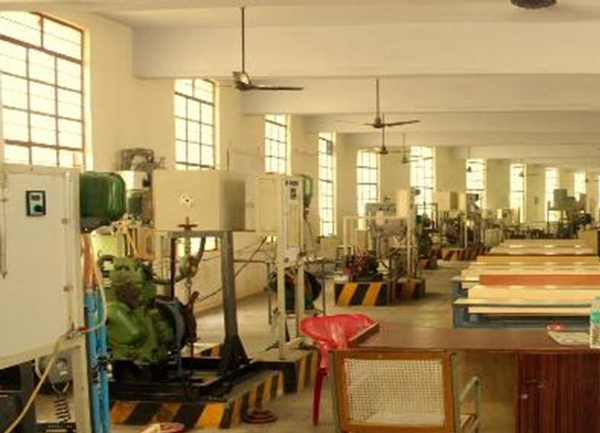
The students are introduced to the mechanics of fluids through a thorough understanding of the properties of the fluids. The dynamics of fluids is introduced through the control volume approach which gives an integrated understanding of the transport of mass, momentum and energy. The applications of the conservation of laws to flow through pipes, open channel and hydraulics machines are studied.
Soil Science Laboratory
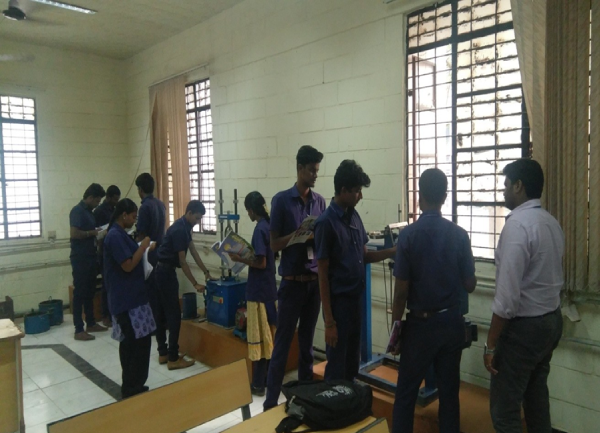
This lab helps the students attain adequate knowledge in assessing both Physical and Engineering behaviour of soils through laboratory testing procedures. This lab is equipped with major equipments like Direct Shear test Apparatus, Triaxial test Apparatus, CBR Apparatus, Consolidation Apparatus, Permeability Apparatus, Relative Density Apparatus, Field Density test Apparatus, Proctor Compaction test Apparatus. Students gain knowledge in differentiating and identifying suitable type of soil for different construction practices. The students learn to identify the Liquid limit, Plastic Limit, Shrinkage Limit, Specific gravity and particle size determination of different types of soil.
Strength Of Materials Laboratory
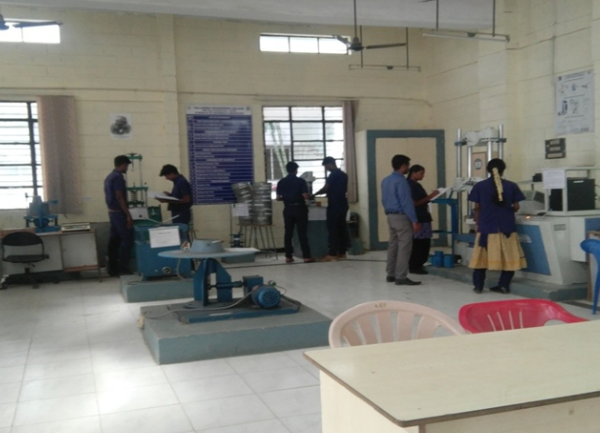
This lab is equipped with the major equipments like Universal Testing Machine, Torsion Testing machine, Beam Testing Apparatus, Rockwell Hardness Testing Machine, Brinell Hardness Testing Machine, Impact Testing Machine, Muffle Furnace and Minor equipments like Metallurgical microscopes, Vicat Apparatus, Le-Chatelier mould, Le-Chatelier Flask etc. Students gain the practical knowledge through these equipments with the help of the Lab manuals. Various tests related to the mechanical properties are conducted in this lab. This lab is utilized by Agriculture, civil and mechanical engineering students.
Crop Husbandry Lab
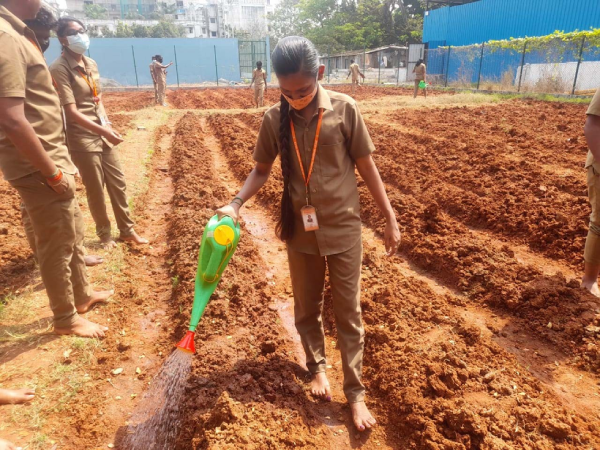
Students will be introduced to different crop production practices in wet land, dry land and garden land through hands on experience and demonstrations. Students will gain knowledge starting from Field preparation studies to Harvesting and Post harvesting which includes Seed selection and seed treatment procedures, Seed bed and nursery preparation, Sowing / Transplanting, Biometric observation for crops, Nutrient management studies, Water management and irrigation scheduling, Weed management studies and Integrated Pest Management studies.
CAD Laboratory For Agricultural Engineering
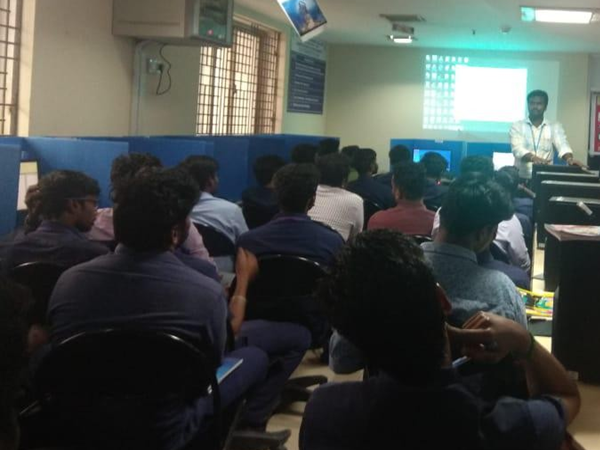
A well-equipped computer lab with advanced facilities is established for the benefit of the Agriculture engineering students. High end terminals supported by latest hardware and software, latest visual aids, plotting devices, etc. are among them. Advanced Agriculture engineering software are procured for making the students globally competitive and industry ready. At CAD lab, students get professional training on 2D & 3D drafting of engineering drawings using the latest version of AutoCAD software. Students will also gain the knowledge of design and drafting needed for Agriculture engineering discipline.
Post Harvest Engineering Laboratory

In this laboratory students are exposed to determine various engineering properties of grains like co-efficient of friction, angle of repose and porosity. Also they are able to practice Post harvest processing of Paddy panicles, Corn, Paddy and Oilseeds. This includes threshing (Thresher), shelling (Sheller) , dehusking (Rubber roll sheller), Decortication (Decorticator), oil extraction (Oil Extractor) and conveyance of (Screw conveyor, Bucket elevator) agricultural produce with the help of machines. Students will able to analyse the post – harvest processing time and for selection of grading equipments.
Operation And Maintenance Of Farm Machinery Laboratory
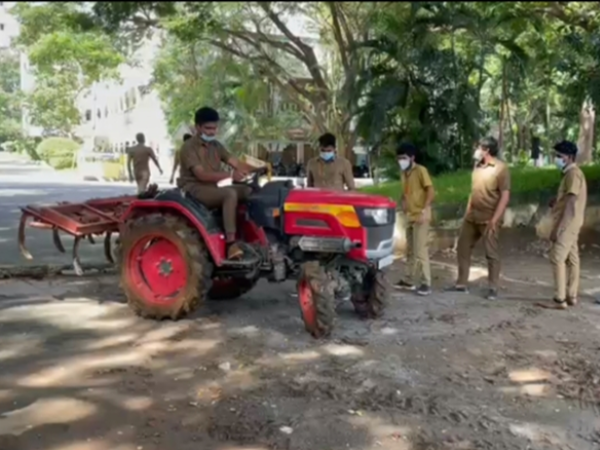
In Farm machinery laboratory, Students will be introduced to the practice of different farm machinery (11 tyne cultivator, Disc Harrow, Disc Plough, Seed drill, Transplanter, Knapsack Sprayer, Weeder, Power tiller and Mower) in the field on tillage, sowing, plant protection, harvesting and threshing. They will be familiar with the operation and maintenance, lubrication, fits and tolerances and replacements. Also they will practice to make adjustments of farm machines, dismantling and reassembling of a disc harrow, seed-cum fertilizer drill and sprayer, engine pumps. Students will learn and recognize the field operations of farm machineries and the working principle of various machines used in field.
Food Process Engineering Laboratory
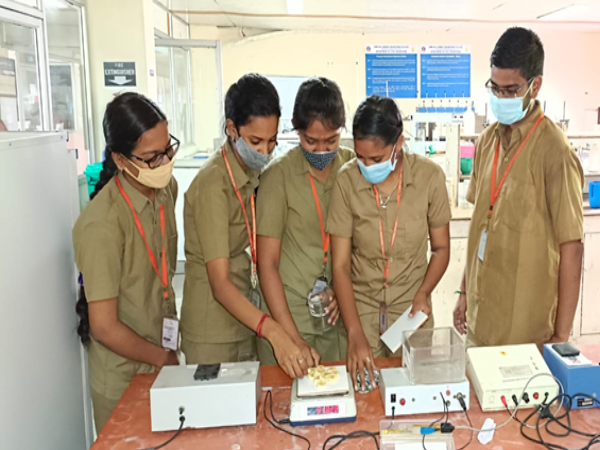
In this laboratory students will get basic knowledge on various properties of food like cooking properties and rehydration ratio. Gets hand on experience on food process technology includes osmotic rehydration and food extruder. Students are able to identify food adulteration in Ghee, Milk, Sugar, Dal and Pulses. Also they will estimate protein content in food with the help of distillation apparatus. Students will conduct food processing experiments like food extraction, cream separation and butter churning.
Irrigation Field Laboratory
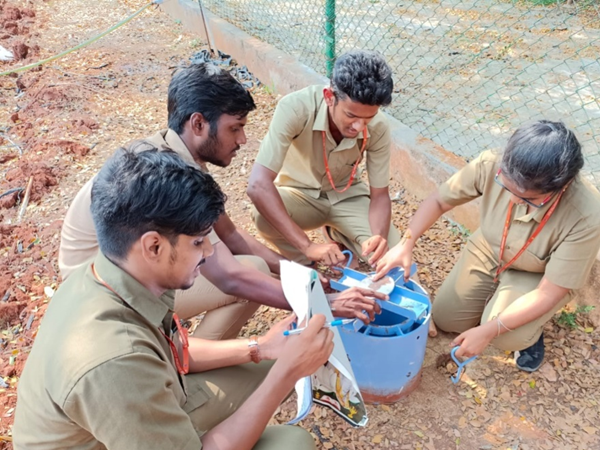
Students will be able to study about various Meteorological instruments includes Cup counter anemometer, Sunshine recorder, Open pan evaporimeter, Stevenson’s screen, Dry bulb, wet bulb thermometers, recording and non- recording type rain gauge double ring infiltrometer in this laboratory. Practically they will conduct experiment to determine the uniformity coefficient of the various irrigation systems. Also students will study about the flow properties in open channels (V notch, Rectangular notch and trapezoidal notch) and conducting the experiment for micro irrigation system wetting pattern and efficiency.
Library
The Department library consist of 60 books which support our users by making the discovery of and access to high-quality resources and assist users in the application of information in their teaching, learning and research activity. Hand books and Thesis collections are also available for the purpose of Innovative projects.
Department Library
- No. of Books: 60
Central Library
- No. of Titles: 20
- No. of Volumes: 72
- No. of National Journals: 6
- No. of International Journals: 6
- No. of e-Journals: 398
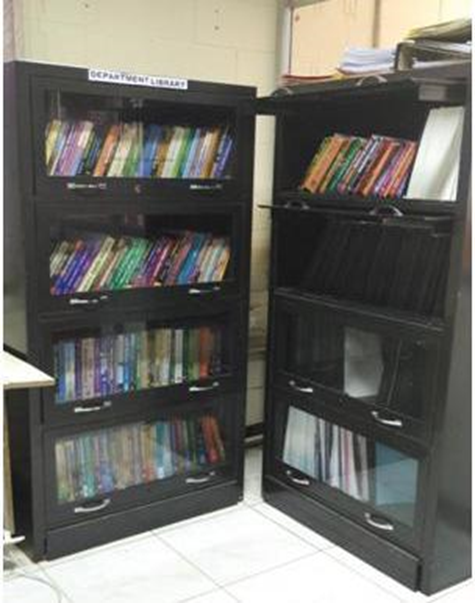
Achievements
Faculty Achievements
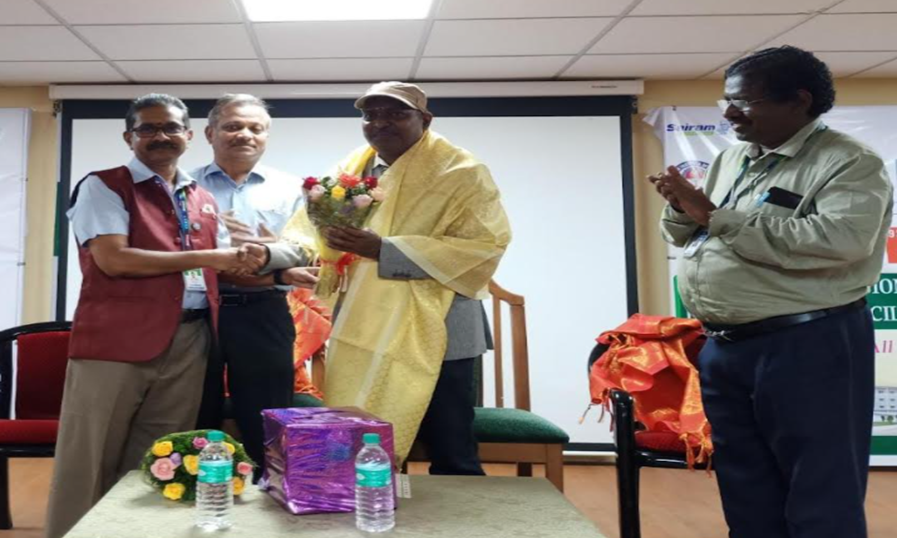
Dr.D.Elango, Professor& Head, Department of Agriculture Engineering has been elected as Chairman IE(I),Kancheepuram Local chapter & All India Council Member for 2 years.
Dr.D.Elango, Professor and Head, Department of Agriculture Engineering actively participated and received appreciation during the inauguration of centenary celebration function of IE(I) Tamilnadu State Centre from Padmashri Dr.A.Sivathanu pillai on 22nd Dec 2021.
Mr. M. Moganraj, Mr.S.Karthick and Ms.J.Nandhini, Assistant Professors, Department of Agriculture Engineering, have qualified GATE 2021.
Dr.D.Elango, Head of the Department, Department of Agriculture Engineering has presented a Webinar titled “Production of Methane Gas and from Municipal Solid Waste Management and Domestic waste water” in Jerusalem College of Engineering on 05-06-2020.
Dr.D.Elango, Head of the Department, Department of Agriculture Engineering has presented a Webinar titled “Municipal Solid Waste Management” in Panimalar Engineering College on 26-05-2020.
Mr. M. Moganraj, Assistant Professor, Department of Agricultural Engineering, received “Good Citizen of Puducherry”, award for suggesting cost effective measure in concept of water rich Puducherry from Lt. Governor of Puducherry – Dr. Kiran Bedi, during July 2018.
Mr.S.Karthick, Assistant Professor Secured Top 1% Gold in Geotechnical Engineering Laboratory during July-October 2018 NPTEL examination.
Mr. M. Moganraj, Assistant Professor, Department of Agricultural Engineering was the Topper in NPTEL in ‘Geotechnical Engineering Laboratory’ course.
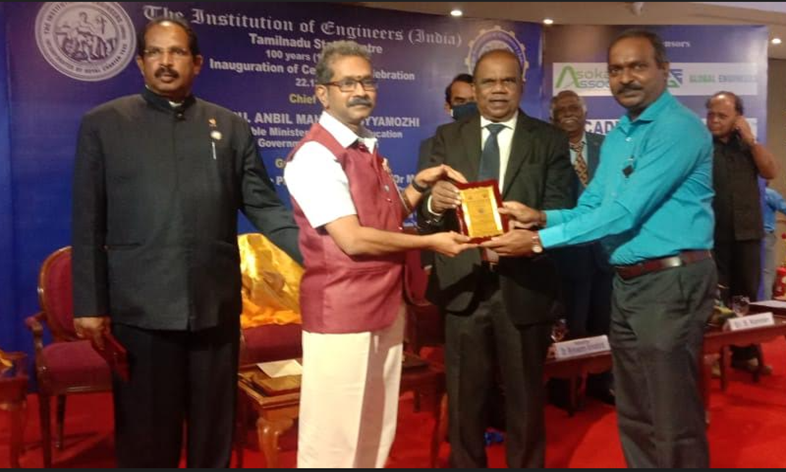
Students Achievements
Academic Year: 2021-2022
D. Manisha got selected ISTE best student award 2021. This awardee student going to be honoured at Ramco Institute of Technology, Rajapalyam on 26.3.2022 in annual students convention program.
P.Deepika won 1st Prize in “Ariviyal Tamil” conducted by Oru Rubaai Ariviyal Tamil Mandram on September 2021.
P.Deepika won 1st Prize in “Tamil Kavidhai” conducted by Leo Club on August 2021.
Academic Year: 2021-2022
P.Deepika won 1st Prize in “Tamil Speech” conducted by Paarivendhar Tamil Mandram, SRMVEC on February 2021.
D. Manisha participated in “Hunger Cycle” International Event conducted by Ms.Dharshini Raju from University of Camerino,Italy on August 2020.
Academic Year: 2019-2020
D. Manisha won 1st Prize in “Powerpoint Presentation” competition conducted by Physics and Chemistry Departments , SRM VEC on March 2020.
D. Manisha won 3rd Prize in “Linguathen – Turn a Coat” competition conducted by English Literary Association , SRM VEC on October 2019.
D. Manisha won 1st Prize (Gold Medal) in “Half Marathon” conducted by Anna University at Zone – IV on October 2019.
G.Aswini won 3rd Prize in “Linguathen – English Speech” competition conducted by English Literary Association ,SRM VEC on October 2019.
K.Abinaya Sundari won 2nd in “Tamil Speech” conducted by Paarivendhar Tamil Mandram ,SRMVEC on August 2019.
A.Anandhavel won 1st Prize in “Tamil Kavidhai” conducted by Paarivendhar Tamil Mandram ,SRMVEC on August 2019.
Events
Academic Year 2021 -2022
Department of Agricultural Engineering organized a Value Added Course on ‘Training on Design and Drafting Agricultural Systems using AutoCAD’ from 1st Nov2021 to 3rd Nov2021. The course coordinator was Ms.P.Dhivya, Asst Professor (O.G). 76 students participated in this course.

The department of Agricultural Engineering in association with Institution of Engineers, Institution’s Innovation Council and Indian Society for Technical Education organized a Technical Talk on ‘Improving Soil Fertility by Enhancing Cation Exchange Capacity’ on 14th August 2021 from 06.00 p.m to 07.00 p.m. Around 75 participants including faculty members, students and research scholars participated in this online event through Microsoft teams. The guest speaker was Mr. R. Ramarathnam, Lecturer, Government Polytechnic College, DOTE, Guindy, Chennai.
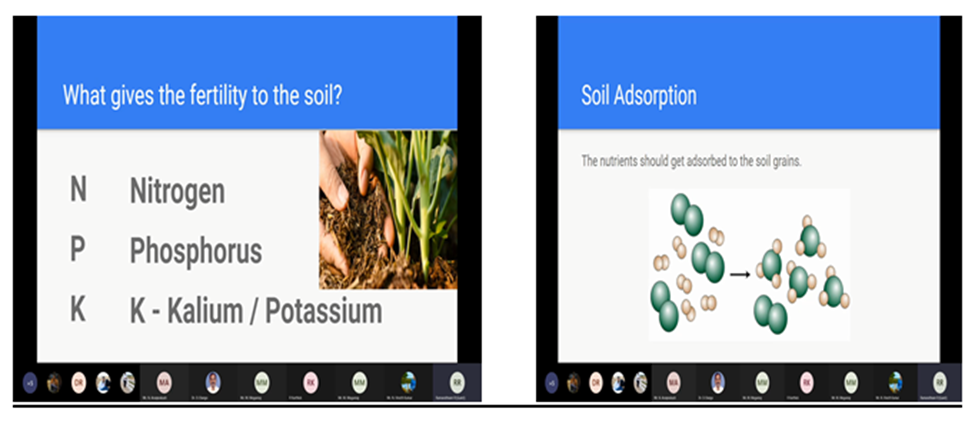
Academic Year 2020 -2021
Department of Agricultural Engineering organized a Value Added Course on “DEVELOPING AND INTRODUCING REGION SPECIFIC SMART FARMING” on 13.02.2021, 20.02.2021 and 13.03.2021. The course was handled by Ms.N.Sinduja, Assistant Professor (O.G) -Agri. and Ms.E.Maheswari, Assistant Professor (O.G) -Agri. Nearly, 40 students participated in this course.
Department of Agricultural Engineering organized a Value Added Course on “NEW CHALLENGES AND ADVANCES IN SUSTAINABLE MICRO IRRIGATION” from 06.07.2020 to 14.07.2020. The training was enrolled by 48 students and 16 teaching staffs from different departments. The participants were welcomed by Dr.D.Elango, Professor and Head, Department of Civil Engineering and the opening session was given by Ms E.Maheswari, AP(O.G)- Agri on “Introduction to the various irrigation systems”. The training was held with topics on Micro Irrigation Advancements and Irrigation Scheduling using CROPWAT handled by Mr. G.Vaithiyanathan AP(O.G)-Agri, Ms.N. Sinduja AP(O.G)-Agri and Ms E.Maheswari, AP(O.G)- Agri.
Placement
Career Guidance
- The students are given wider exposure to apply for various courses in different universities.
- The students are trained to take up entrance exams for their higher studies. Procedures for applying to different universities are imparted.
- The faculty members of Placement and Training department guide the students throughout their period of study.
- The placement cell helps the students to complete their internship by placing them in various companies.
Research
- Mr.T.R.Banuchander has published a paper titled “Effect of chrome tanning effluent on cohesive soils” published in International Research Journal of Engineering and Technology (IRJET).
- Ms.P.Dhivya has Published Journal on “Bioaccumulation study by Lemna Gibba Lin”, Pollution Research Papers (EM International), Vol.33, Issue 03, 2014.
- Mr.M.Moganraj has published a paper titled “Consolidation and Rebound Characteristics of Expansive Soil byusing Lime and Bagasse Ash”, International Journal of Research in Engineering and Technology,Volume 3, Issue 4, pp 1 – 8, 2014.
- Ms.P.Dhivya has Published Journal on “Strength and Durability Calculations for Fiber Reinforced Concrete”, International Journal of Science and Research, Vol. 2 Issue 7, July 2013.
- Ms.J.Nandhini has published a paper titled “A Comparative Study on Performance of Conventional photo bioreactors and Alga disk in CO2 sequestration” has been published in Energy Sources, Part A: Recovery, Utilization, and Environmental Effects. To link to this article: https://doi.org/10.1080/15567036.2019.1607938.
- Ms.P.Dhivya has Published paper on “Affordability Analysis for Efficient Urban Water Supply”,Third National Conference on “Advances and Innovations in Civil and Mechanical Engineering – AICME’13”, C174-C176, September 2013.
- Ms.J.Nandhini has published a paper titled “Aspects of photobioreactor and algadisk in CO2 sequestration and biomass production” has been published in Energy Sources, Part A: Recovery, Utilization, and Environmental Effects. To link to this article: https://doi.org/10.1080/15567036.2019.1675819.
Alumni
Contact
Dr. S. Packialakshmi M.E., Ph.D.,
Professor & Head,
Dept. of Agricultural Engineering,
SRM Valliammai Engineering College,
SRM Nagar, Kattankulathur – 603 203,
Chengalpattu District,
Tamil Nadu, India.
TEL : 044 – 27454784 / 726, EXTN : 8101
FAX : 044 – 2745 1504.
EMAIL : hod.agri@srmvalliammai.ac.in


